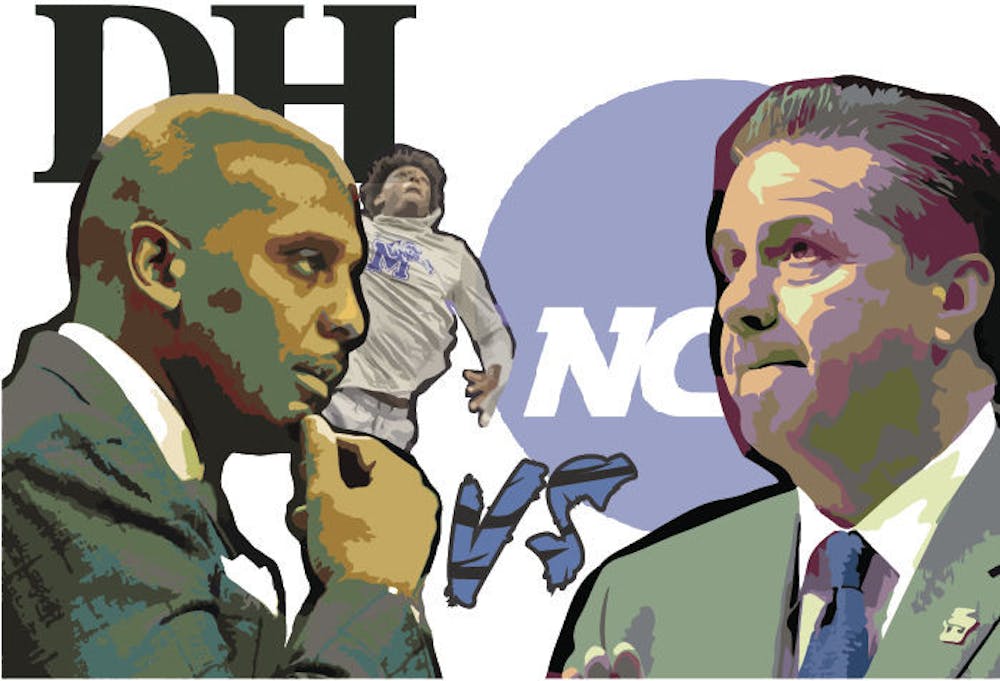The University of Kentucky (UK) may have prompted the investigation into James Wiseman’s eligibility, and with the news of James Wiseman’s eligibility in jeopardy, the now Kentucky Wildcat coach’s name has slithered back into the conversation.
Wiseman, the number one recruit in the 2019 recruiting class, committed to the University of Memphis over popular basketball schools such as Kentucky, Kansas and North Carolina. In May, Wiseman’s eligibility was cleared by the NCAA, including a disclosure of the $11,500 Penny Hardaway gave to Wiseman’s mother for moving expenses in 2017 before he was the Memphis coach. On Nov. 5, Wiseman made his first collegiate appearance. Three days later, the NCAA declared that Wiseman was “likely ineligible.”
That is part of what makes Wiseman’s case so unique. Not only was Wiseman declared eligible, but the certification was then reopened, and the ruling over his eligibility was completely changed.
Richard Johnson, an attorney based in Ohio, has dealt with legal matters from the NCAA for over a decade. He is well known for representing Andrew Oliver, a freshman pitcher at Oklahoma State University (OSU). The NCAA ruled that Oliver was ineligible to play baseball at OSU due to having legal counsel during a meeting between Oliver and a MLB team in his house. The legal counsel Oliver had was deemed an agent, which was an NCAA violation at the time.
Oliver v. NCAA was the first college athlete lawsuit against the NCAA to ever go to trial, resulting in the first court victory by a college athlete against the NCAA. As an expert on legal matters regarding the NCAA, Johnson believes there is some sort of outside influence that coerced the NCAA to reopen the file involving Wiseman’s eligibility.
“I know how the NCAA works,” said Johnson. “That file was closed. They deal with hundreds of thousands of athlete certifications every year. Once the file is closed, it does not get reopened. That is, unless someone with a lot of power wants it to be reopened. There is no reason for this to be reopened unless someone wants it to. My guess is that it is the University of Kentucky—they’re the ones who have the motive.”
Penny Hardaway, in only his second season at the helm of an NCAA basketball program, managed to bring in the top recruiting class in the nation this past year. Three of the nine incoming freshmen had some form of interaction with UK during their recruitment process: Wiseman, Jeffries, and Lester Quinones. D.J. Jeffries, a five-star recruit, had even committed to the Wildcats prior to committing and signing to the UofM, but these are just motives from the past year.
Calipari might be recognized as one of the NCAA’s best coaches in the win column, but a dive into his past shows a pattern of cheating and lying by the schools he was at — even while he was at Memphis. During his stint as the head coach at the University of Massachusetts, he faced a vacated Final Four appearance due to a player accepting money and services from agents.
Although Calipari denied knowing this was occurring, he was connected to another violation while he was the head coach at the UofM. Derrick Rose was found to have violated NCAA bylaws when he allegedly had someone else take his SAT in Detroit, instead of Chicago — where Rose lived at the time.
Calipari was informed by the NCAA of this violation on Jan. 16, 2009, more than two months before taking the job at UK. At the time, DeMarcus Cousins had committed to the UofM and John Wall was soon on the way. Both recruits ended up playing for Calipari and the Wildcats.
“I’m sure all of these college coaches are jealous of Penny, because but the real deal,” Johnson said.
After all, Hardaway is not only a former NBA superstar, he is also an Olympic gold medalist. A feat that has not been achieved through play by Calipari nor North Carolina head coach Roy Williams. When personal accolades come into the conversation, it is easier to see the effect that Hardaway’s reputation has on the recruitment process.
“That gang of coaches who were never good players themselves, let alone star players, let alone gold medal winners, don’t want him in their club,” Johnson said. “He makes them look bad. It also makes them feel inferior because, well, they are.”
The NCAA would have had a very hard time deciding to go back into a closed file to re-investigate an athlete in the manner that it did. Among the hundreds of thousands of athletes who have to be cleared by the NCAA every year, reopening Wiseman’s file is like finding a needle in a haystack.
“I know, from how they operate, that couldn’t have happened without influence from somebody from the outside,” Johnson said. “It is logical that the only person to intervene was someone with a motive.”
Calipari has clear ties to Memphis as a city and institution. The motive is there, and reopening the case does not happen by accident, Johnson said.
“I don’t know exactly who or why this happened. What I do know is that this does not happen by accident. It happens when somebody interferes with the process--that’s the only way it can happen,” Johnson said.






